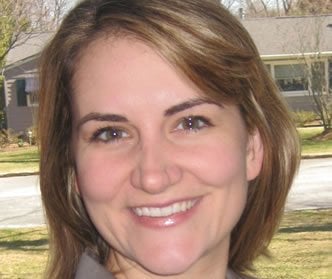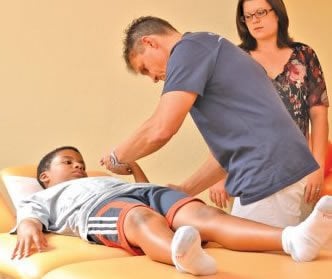20 Questions: Gregory Frazer, AuD
Dr. Gregory Frazer shares his perspective on the field of audiology and advice for students.
Juliet Farmer
Updated February 28, 2019 by Juliet Farmer
Dr. Gregory Frazer shares his perspective on the field of audiology and advice for students.
Juliet Farmer
Updated February 28, 2019 by Juliet Farmer

Kimberly O. Scanlon discusses her thoughts on the field of speech-language pathology and shares advice for students.
Juliet Farmer
Updated June 27, 2022 by Juliet Farmer
Susan Schriber Orloff shares her thoughts about the field of Occupational Therapy and advice for students.
Juliet Farmer
Updated June 27, 2022 by Juliet Farmer
Dr. Brendan Pratt shares his perspective on the field of child psychology and advice for students.
Juliet Farmer
Updated June 27, 2022 by Juliet Farmer
Dr. Secili DeStefano shares her insights about the field of physical therapy and advice for students.
Juliet Farmer
Updated June 27, 2022 by Juliet Farmer
Dr. Christopher K. Thiagarajah shares his perspective on the field of oculoplastics and advice for students.
Juliet Farmer
Updated June 27, 2022 by Juliet Farmer

Dr. Joseph L. Fink III shares his thoughts on the history and evolution of the profession of pharmacy.
Joseph Fink
Updated January 21, 2019 by Joseph Fink
Heidi Nejezchleb Tringali shares her thoughts about the professional of Occupational Therapy, and advice for students.
Juliet Farmer
Updated June 27, 2022 by Juliet Farmer
Dr. Jarrod Shapiro shares his insights about the field of podiatry and advice for students.
Juliet Farmer
Updated June 27, 2022 by Juliet Farmer
Dr. Michael B. Rogers shares his insights on the field of orthodonics and advice for students.
Juliet Farmer
Updated June 27, 2022 by Juliet Farmer
Read on for advice on how to maximize your learning in Introductory Pharmacy Practice Experiences.
Sarah Lawrence
Updated February 27, 2019 by Sarah Lawrence
Felicia Sison Conlan shares her insights about the field of speech-language pathology and the opportunities it offers students.
Juliet Farmer
Updated June 27, 2022 by Juliet Farmer
Dr. Bettie Borden shares her insights about the profession of audiology and her advice for students.
Juliet Farmer
Updated June 27, 2022 by Juliet Farmer
Dr. Jennie Kaufman Singer's clinical psychology career has included private practice, public service and academia.
Lee Burnett
Updated June 27, 2022 by Lee Burnett
Dr. Lance Campbell shares his insights about the field of compounding pharmacy and the opportunities it offers
Rosrin Wuithiran
Updated June 27, 2022 by Rosrin Wuithiran
Dr. Ruchi Sahota shares her insights about the field of dentistry and her advice for students.
Lee Burnett
Updated June 27, 2022 by Lee Burnett
This is the second article in our series about the physical therapy admissions process.
Gregory Brusola
Updated August 17, 2022 by Gregory Brusola
Dr. Anthony S. Youn talks about his book and shares his insights about the medical profession and the field of plastic surgery.
Juliet Farmer
Updated June 27, 2022 by Juliet Farmer

A brief overview of the process of applying to physical therapy programs.
Gregory Brusola
Updated August 17, 2022 by Gregory Brusola